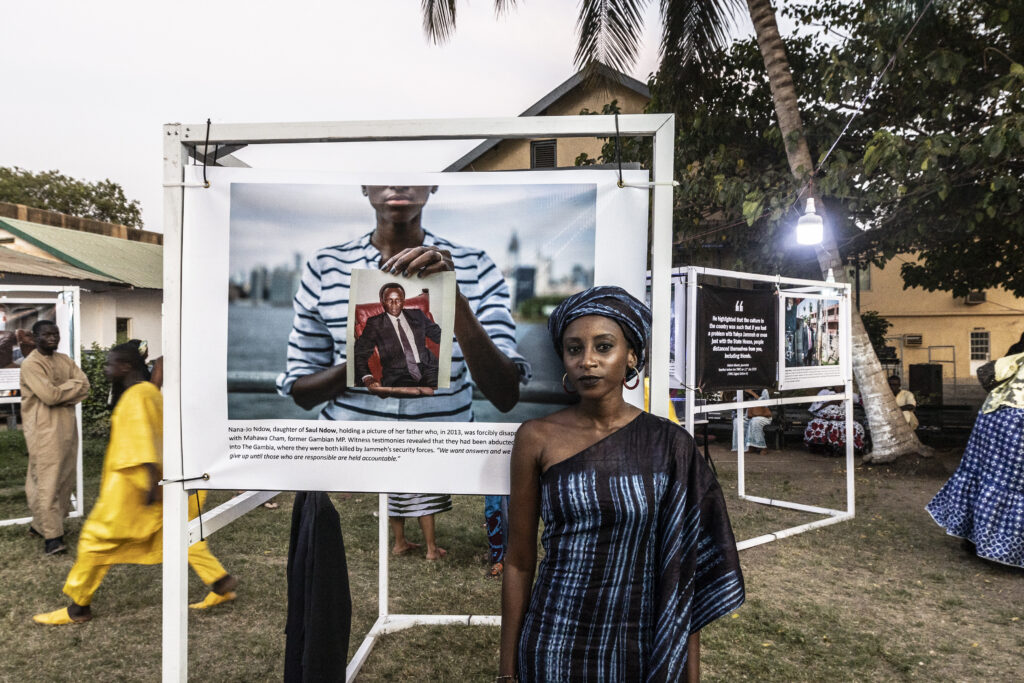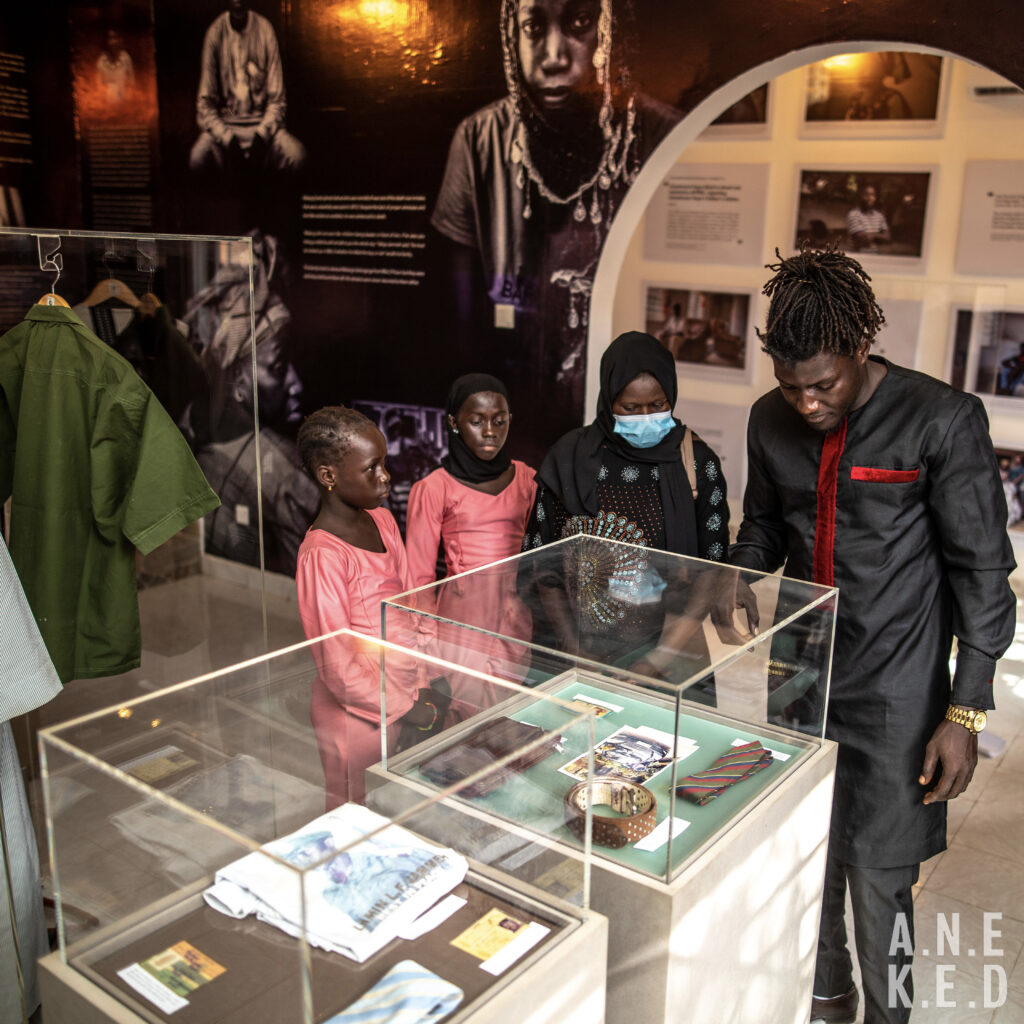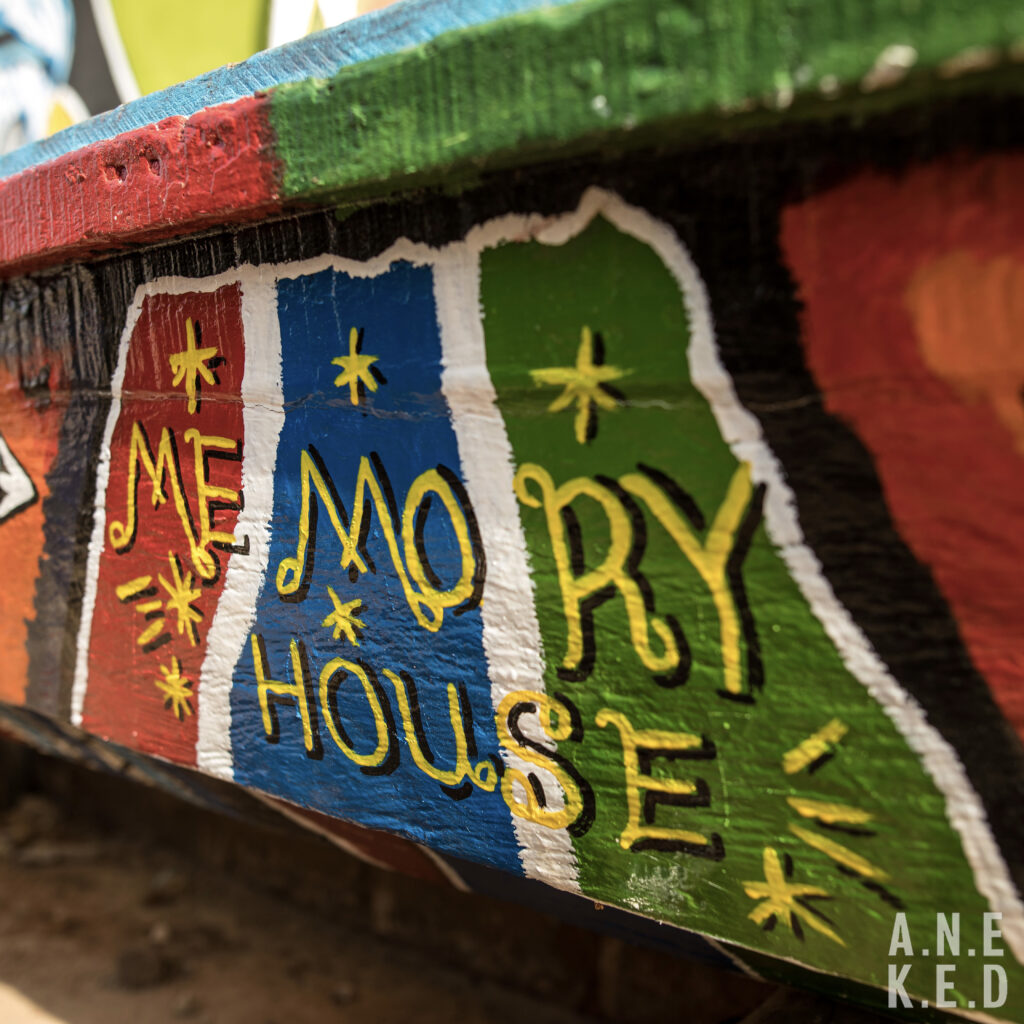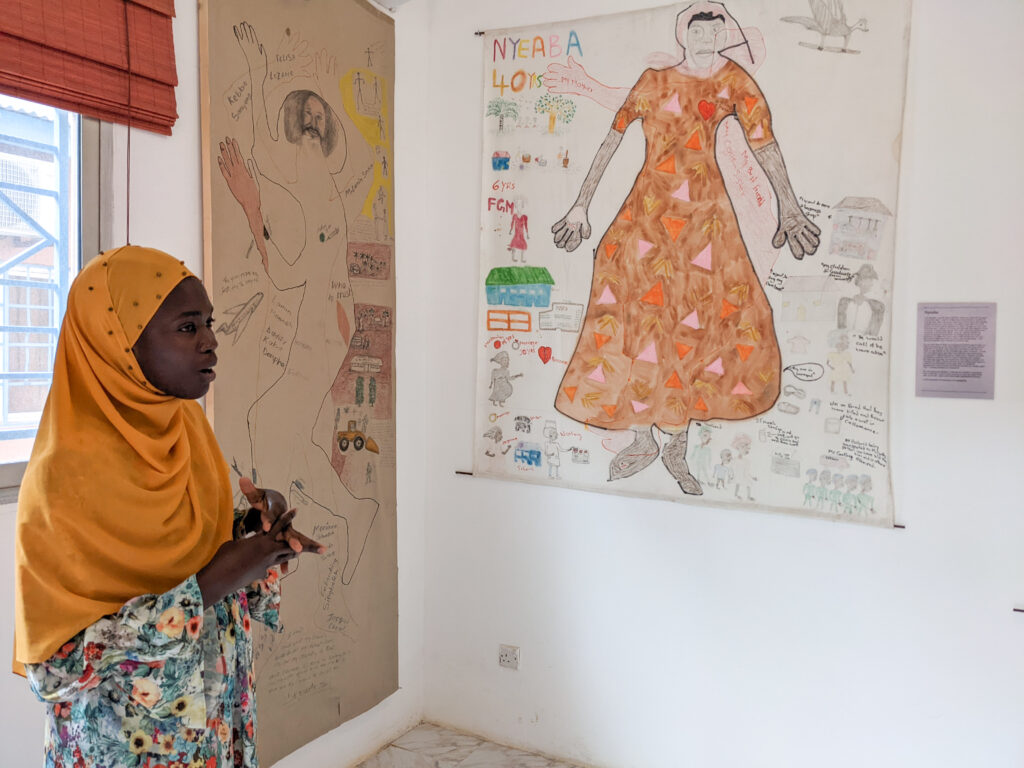From 1994-2016, the Yahya Jammeh regime in The Gambia was characterized by gross human rights violations, including torture, enforced disappearances, extrajudicial killings, and sexual violence. The regime also fueled a division among different ethnic groups that continues today. In honor of her father Saul Ndow, who was forcibly disappeared in The Gambia in 2013, Nana-Jo Ndow founded the African Network Against Extrajudicial Killings and Enforced Disappearances (ANEKED), a youth-led civil society organization in 2018 to assist Gambians in healing old wounds and securing justice for victims and survivors. Since then, the Site of Conscience has regularly partnered with our Global Initiative for Justice, Truth, and Reconciliation to ensure that victims and survivors of the country’s dictatorship play a central role in its transitional justice process. In this interview, Nana-Jo Ndow and Sirra Ndow, ANEKED’s Country Representative, speak with ICSC about the Site of Conscience’s mission and growth.
Can you tell us about ANEKED’s origins? What needs did the organization seek to fulfill for the community?
Nana-Jo Ndow: We were founded in 2018 and operational in 2019, but in essence we started in 2013, when my father, Saul Ndow, was forcibly disappeared. He had a long history of activism, and was a huge critic of Jammeh, arguing since 1996 for civilian power. When he went missing, we did everything to find him, but we were operating as individuals, totally isolated, with no connection to others. On a personal level, it destroyed our family. We thought, “If we are feeling like this and we are quite privileged, what about those who don’t have our advantages?” We realized then that we needed an organization to formalize processes that support families and advocate for justice.

What was the community’s reaction when you first started your work?
Sirra Ndow: We knew that we needed platforms to share stories like ours. But, sadly, many people in The Gambia were accustomed to turning their backs on victims or, I think, were wary of being too closely associated with them. Even victims themselves were hesitant at first to share their stories. There really wasn’t a culture of going to museums or places where you could reflect on these issues in The Gambia. That’s what made our pilot exhibit so groundbreaking.
With funds from the International Coalition of Sites of Conscience, you were able to fund this pilot exhibit entitled “The Duty to Remember.” Can you tell us about its initial reception and impact?
Nana-Jo Ndow: The pilot phase was mind-blowing. First off, it was very healing for me on a personal level. For others whose stories were featured, they also felt emboldened. Before the exhibit, they would not necessarily have thought they wanted to be “out there” in that way, many were quite nervous about it. But once it was displayed, a feeling of collective strength took over. They were proud of their resilience and strength. We were all sharing our pain, but in a way that was uniting. And for the community – it really opened their mind. They too wanted to share. Some were upset they hadn’t been included and wanted to tell their story in a similar way, so we would follow up with them. Honestly, the pilot was IT. It changed everything.
Can you talk a bit about the long-term effects of bringing victims and community members together in this way?
Sirra Ndow: Victims have become a family. We talk to each other regularly. We know each other’s kids. We have this sense that we are in this together, which is huge for a country that was drowning in distrust for decades. The dictatorship destroyed our sense of community and trust, so to have a diverse, but extremely tight community of victims and allies now is incredibly meaningful.


Nana-Jo Ndow: I completely agree, and there has also been a shift in mindsets, I think. Firstly, in The Gambia, there is beginning to be less stigma around the subject. Many people openly choose to be called victims as a means to raise awareness and tell the truth about the past, while others, including those who have been subjected to violations such as the fake HIV program and sexual and gender-based violence, prefer the term survivor. Regardless of the word chosen, since sharing our stories, we see ourselves as active agents in our story. To see your experiences being shared with society gives you a sense of worth, and when you realize it’s going to be preserved for future generations too, well, it’s very empowering.
In 2021, you opened a physical space called “Memory House,” where “The Duty to Remember” can be permanently shared. Can you speak about this and your goals for the future?
Nana-Jo Ndow: Memory House is really a home. It is a place of collective strength, where victims can share their pain, but also feel united. We have this space because of the International Coalition of Sites of Conscience. You were the generator. Nothing like this has ever been done in The Gambia. And it’s so meaningful in a country where you have been robbed of so much, especially closure. To have a space like this is amazing for victims, young people, all Gambians. They have really begun to take ownership of the space. We were so worried when we opened about being able to maintain the place, but people and partners donated. No one litters or is disrespectful. There is something happening here. It is an experience.

Sirra Ndow: Our goal moving forward is to have a place of our own. We are currently renting the space, and accessibility is an issue. We would love a bigger space that we own and can nurture as a museum. That said, we are committed to maintaining a traveling aspect to the exhibit. As Nana-Jo mentioned, there is not really a culture in The Gambia of going to museums, particularly outside the capital Banjul, so we are bringing it to people throughout the country and even to other countries. We were just in New York City, where there is a large Gambian population. Doing this is helping to break lots of taboos people have about victims and create more empathy for them.
You have also partnered with our Global Initiative for Justice, Truth, and Reconciliation in their efforts to make the TRRC process in The Gambia more inclusive? Can you talk about how that experience has helped you grow and impact the Truth Commission’s findings?
Nana-Jo Ndow: Our trainings with the GIJTR have really assisted us in connecting our memory work with issues of justice and accountability. After visiting Memory House, visitors understand that victims are not unreasonable. As Sirra said, there is much more empathy for them now, but there is also more outrage. Visitors understand that what happened is unjust and that people must be held accountable. What’s great about working with ICSC and GIJTR is that it is a true partnership. There is mutual respect. You do not simply implement projects. You listen to us on the ground, and you trust us. That allows us to be innovative and effective. In addition to our memory work, for instance, our documentation has been used as evidence in court against alleged perpetrators. We are making a difference in so many realms because of you.

